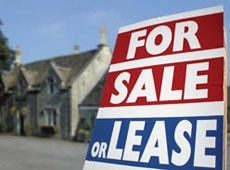Legal checklist: Changing your address

Premises licence
(Section 33 of the Licensing Act 2003)
■ If I am an individual holder of a premises licence I must give notice if, for example, I change my surname, change my address or if I am a director of a limited company if there is a change to the company name or registered office.
■ I must give this notice “as soon as is reasonably practicable”.
■ I must give the notice to the relevant local authority (in other words,
the authority that granted the premises licence).
■ I must pay a fee of £10.50.
■ There is no set form but in practice written notification is necessary and it is sensible to keep a copy of what has been sent.
■ I must send with the notice the original premises licence or if that is not practicable, a statement as to why I cannot produce it (for example, if it has been lost).
■ If I fail to give the notice “without
a reasonable excuse” I commit an offence which I can be fined a maximum of £500.
■ If I am the designated premises supervisor but not the premises licence holder then I may give notice to the relevant authority of a change but I do not have to do so.
■ Perhaps surprisingly I don’t have to give notice if my pub or bar changes its name (for example following the sale of the business) but it is good practice to do so in order that the premises licence remains accurate.
Personal licence
(Section 127 of the Licensing Act 2003)
■ I must give notice of a change
of name and/or address to the relevant licensing authority involved
(the licensing authority that granted the licence).
■ I must give this notice “as soon as reasonably practicable”.
■ I must pay a fee of £10.50.
■ There is no set form but, in practice, written notification is necessary and it is sensible to keep a copy of what has been sent.
■ I must send with the notice my personal licence or, if that is not practicable, a statement of the reasons why I cannot produce it.
■ If I fail to give the notice “without a reasonable excuse” then I commit an offence for which I can be fined a maximum of £500.
Summary
Please do be aware of these requirements. While they may seem initially to be somewhat trivial, failing to give notice as either premises licence holder or personal licence holder could ultimately lead to a criminal prosecution, loss of good character and indeed — in relation to the holder of a personal licence consideration by the magistrates’ court — as to whether the personal licence should be suspended or forfeited.


